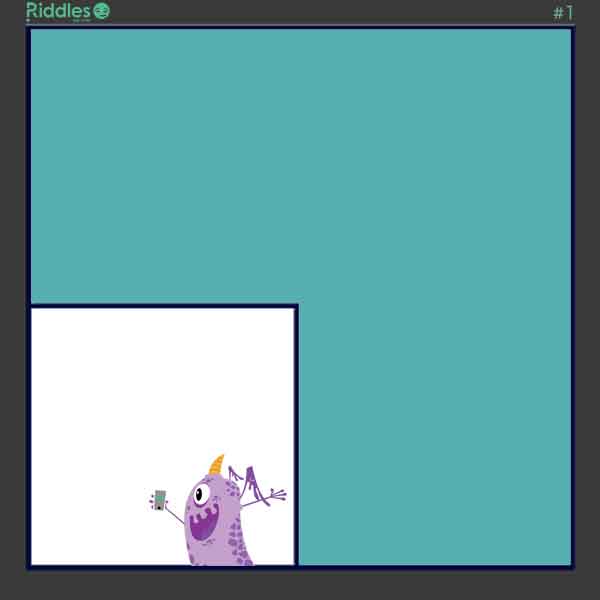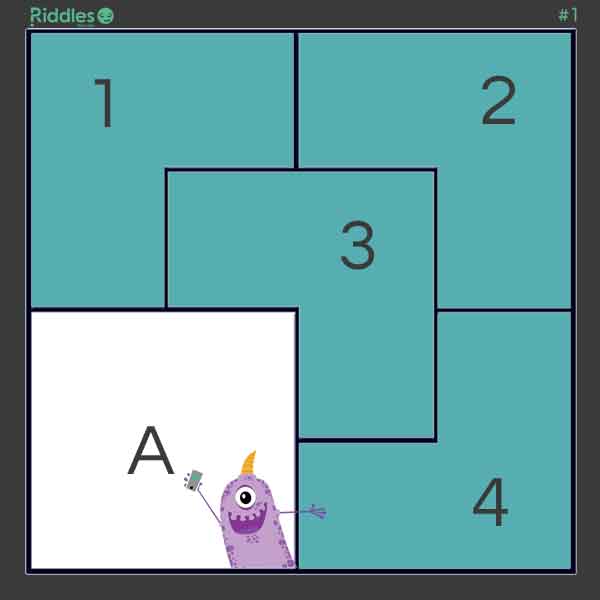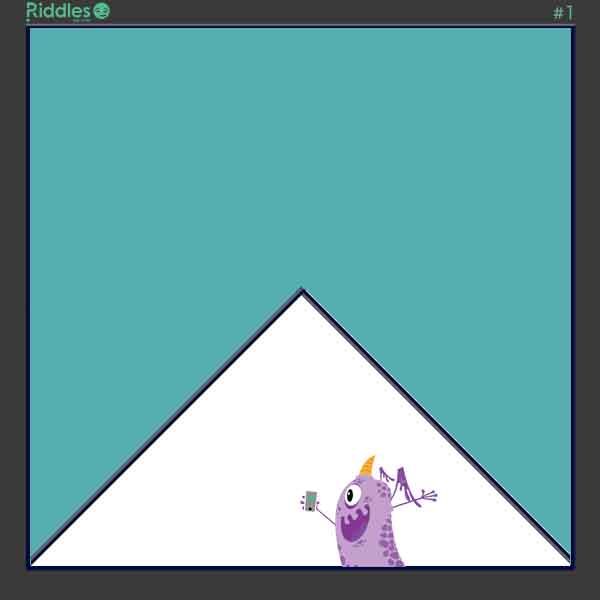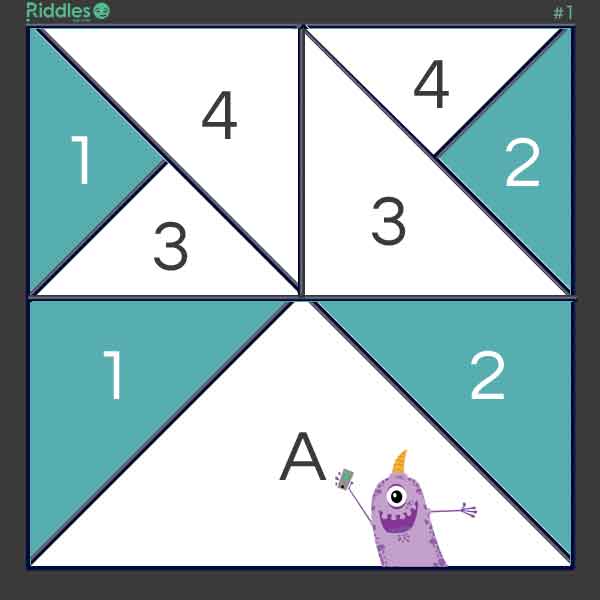A Compilation of Riddles
Riddles, Riddles everywhere, and not an answer we can spare! Finding the answer is up to you! We have riddles for all ages and when you are done you can share them with your friends and family! Tag- “Tell me a riddle?”
Riddles and answers for your enjoyment. Click the answer button to show the riddle answer. Scroll down to see the list of riddles. Click the next page for more! Please rate and share.
Play "Rirdle" Riddles.com's daily brain teaser game.
Not sure where to start? Jump straight to our Best Riddles — a curated collection of the most popular and clever riddles on Riddles.com.
 Then, Carl takes the remaining 3/4 shape and scales it down by 1/4. He then, multiplies the shape into 4 identically shaped pieces, and aranges them so that they fit into the original 3/4 shape.
Then, Carl takes the remaining 3/4 shape and scales it down by 1/4. He then, multiplies the shape into 4 identically shaped pieces, and aranges them so that they fit into the original 3/4 shape.
 Solution #2 - Rectangles
First, create a triangle that is 1/4 the size of the square.
Solution #2 - Rectangles
First, create a triangle that is 1/4 the size of the square.
 Now, with straight lines, create two squares.
Proceed to disect the two squares with horizontal lines creating 4 triangles.
Then, disect one of the resultuing triangles from each square. The shape of land for each of his four children is divided evenly and is the same shape.
Now, with straight lines, create two squares.
Proceed to disect the two squares with horizontal lines creating 4 triangles.
Then, disect one of the resultuing triangles from each square. The shape of land for each of his four children is divided evenly and is the same shape.

Prefer carefully selected brain-teasers? Check out our Best Riddles — the top 100 riddles we recommend first.
Find riddles in a specific category or peruse riddles in the funny riddles, kids riddles, and hard riddles sections.

